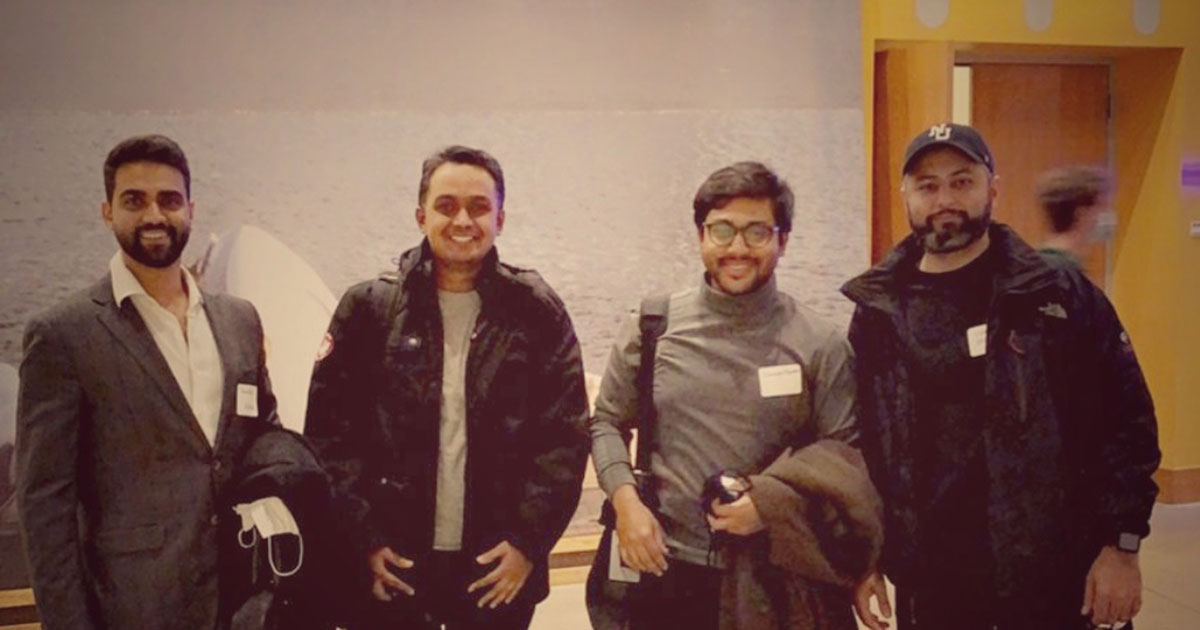Hacking a Solution to an Energy Problem
Azgar Ali (MEM '22) applied lessons from Northwestern's Master of Engineering Management (MEM) program while competing in the 2021 MIT EnergyHack.

Azgar Ali (MEM '22) heard a lot of hype about growing advancements in artificial intelligence, machine learning, ledger-based blockchain systems, and data mining. He wanted to use those technologies to create innovative solutions to societal problems, but to do that, he realized he needed a better understanding of the underlying technology behind the systems. He also wanted to develop a firm business background so he could identify organizational challenges and use technology to solve those problems.
To accomplish those goals, he turned to Northwestern's Master of Engineering Management (MEM) program.
"An MEM degree sits exactly at this intersection (of business and technology)," Ali said. "An MEM degree appealed to me because it would teach the data-driven tools that can be applied across diverse industries and processes to address local, national, and global challenges."
Ali recently put his early MEM lessons to practice as a participant in the 2021 MIT EnergyHack, where more than 300 engineers and MBA students from around the world gathered in teams to develop innovative solutions for problems related to energy and climate change. Six companies presented sponsored challenges to the competitors, with each team responsible for one challenge.
Ali worked with three other MEM students — Abhinav Mahata ('22), Usman Rafiq ('22), and Abdullah Alseflan ('22) — on a challenge from SmartFlower, a novel solar-energy product. The team was given 36 hours to answer how the company can integrate the Smartflower product into the distributed generation plans of utilities across the United States and around the world.
Ali and his teammates were expected to address both the engineering requirements and market viability of the SmartFlower integration. The team used business lessons learned in MEM like unit economics, segmentation, and market analysis, as well as engineering knowledge needed to reconfigure the product, to come up with their ultimate solution: a virtual power plant network creating an internet of energy.
Ali's team did not win, but they were proud the winning team — which was made up of students from Northwestern's Master of Science in Energy and Sustainability program — also came up with a virtual power plant model.
"Their solution aligned with ours, but they presented it extremely well," Ali said. "We realized that a good presentation is as important as a good solution."
Another lesson Ali was reminded of was the power of collaboration, a lesson reinforced throughout MEM. Ali said he is looking forward to applying what he learned from the experience to the remainder of his time in MEM, as well as to what he hopes will be a successful consulting career after graduation.
“Bettering the world through sustainability solutions is a collaborative process, rather than work done in silos,” he said. “Applying lessons from MEM helped us gain confidence.
“We realized what we can achieve as potential engineering managers.”

